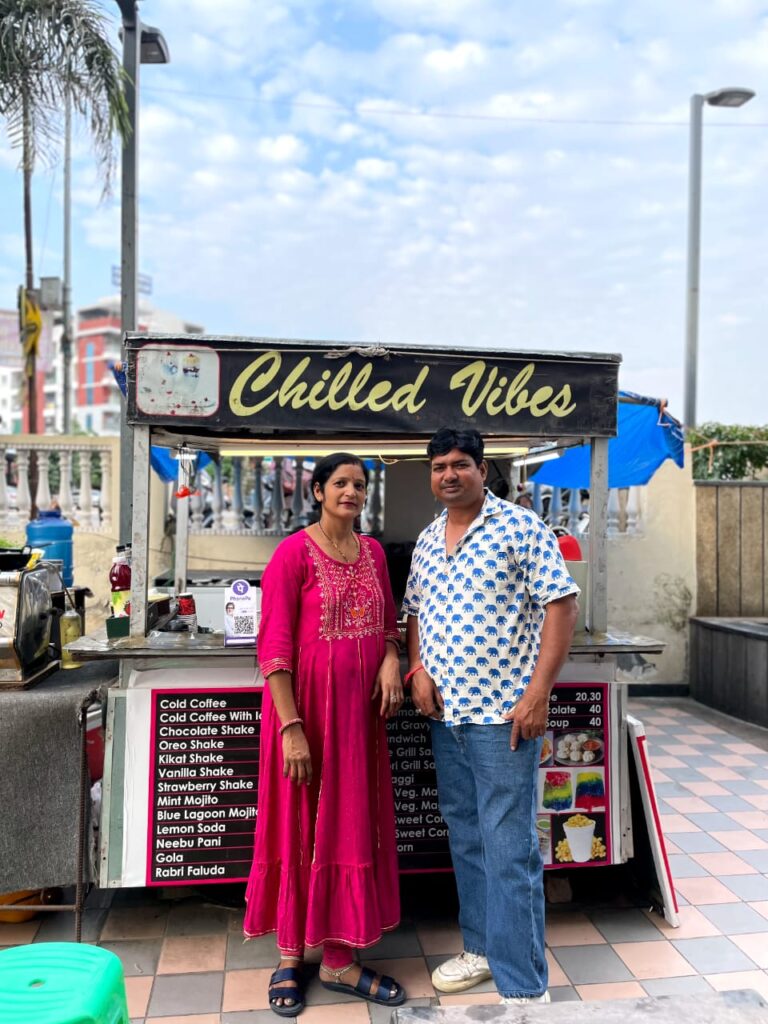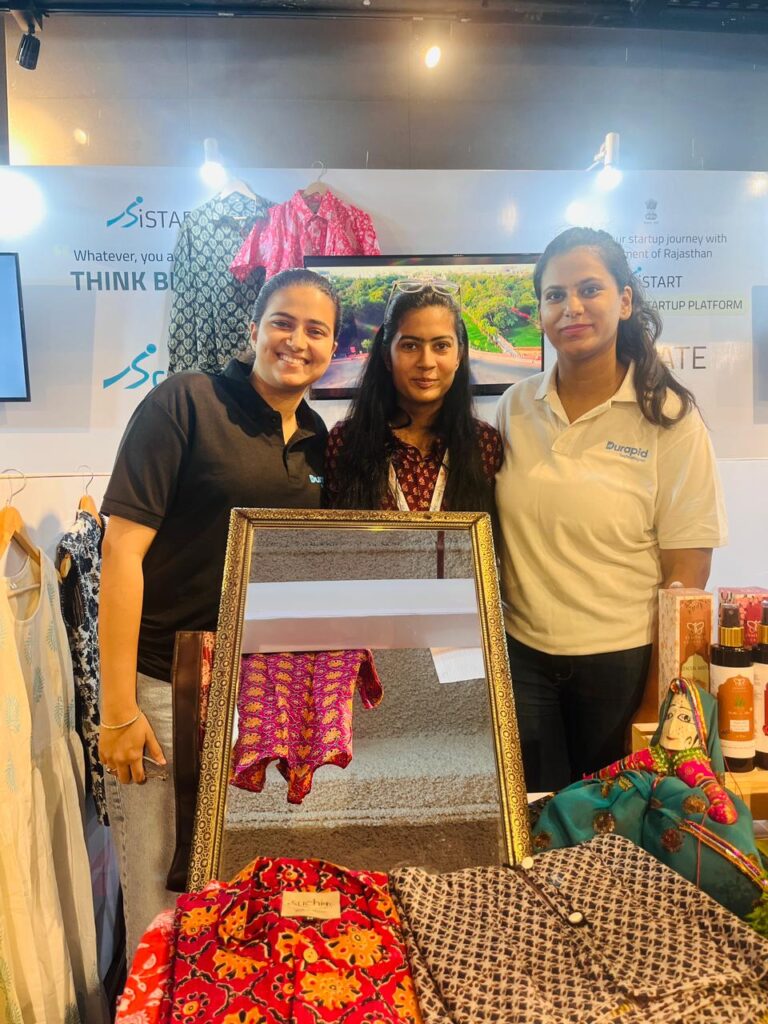INDIVIDUAL
Chilled Vibes: A Dream Realized
Miss Usha Ji and her husband, Jitendra Kumar Ji, started their journey in the workforce with various jobs, striving to make ends meet. They faced numerous struggles, often receiving meager salaries that barely covered their household expenses. Despite the financial strain, Usha harbored a dream of starting something of her own, believing that she could create a better future for her family.
As time passed, their children grew up and entered college, adding to Usha’s motivation to succeed. During these years, she explored various small business ideas, trying her hand at different ventures. However, each attempt fell short due to a lack of business knowledge or insufficient investment. Despite her determination, Usha often found herself frustrated, feeling as if her dreams were slipping away.
For many years, Usha continued to struggle, balancing her job while nurturing her aspirations. She never lost hope, constantly brainstorming new ideas and looking for opportunities. It was a challenging period, but Usha’s resilience and unwavering spirit kept her going.
Finally, in 2022, with the support of her husband and children, Usha took the plunge to open her own food cart. They pooled their resources and worked together to bring her dream to life. With ideas and encouragement from her family, they decided to name the cart “Chilled Vibes,” reflecting their philosophy of being chill and working for one’s dreams.
Today, their food cart is a symbol of their hard work and perseverance. Usha Ji’s journey is a testament to the power of resilience and family support, showing that with determination and teamwork, dreams can indeed come true.

Jigyasa's Entrepreneurial Journey
Inspired by her brother’s entrepreneurial journey, Jigyasa took the bold step to start her own enterprise, Suchik—a name derived from Sanskrit that signifies “customized” or “tailored” products. She aimed to blend two distinct fashion movements: block prints and streetwear, all while adhering to ethical, organic, fair trade, and sustainable practices. With a small team, she focused on preserving cultural art and traditional craftsmanship.
However, being so young presented its challenges. Jigyasa found it difficult to assemble a team of equally enthusiastic craftspeople, artisans, tailors, and suppliers. Explaining her intended designs to the tailors proved to be particularly challenging, especially since she wanted to emphasize sustainable production and a zero-carbon footprint model.
Initially, Jigyasa also struggled with customer interactions, particularly during exhibitions. Nervousness often overwhelmed her, making it hard to communicate her brand, vision, and products effectively. As a new brand, potential customers were hesitant to engage, which impacted sales and product movement.Despite these hurdles, Jigyasa remained grateful for the unwavering support of her friends and family, who offered whatever help they could. Her brother, in particular, played a crucial role. He imparted valuable lessons on launching, running, and growing a business, standing by her side during every milestone, including her first customer interaction.
Under his guidance, Jigyasa ensured that every piece was mindfully and meticulously handcrafted. Even leftover fabric scraps were transformed into tote bags, scrunchies, and other accessories, reflecting her commitment to sustainability.For Jigyasa, the essence of her business was about building interpersonal relationships. She envisioned a future where her customers were not just one-time buyers but allies, ambassadors, and supporters of her brand, helping her turn Suchik into a significant force in the fashion world.

